LGBTQ+ youth speak on issues that affect them
South Africa’s youth are faced with many socio-economic issues that are far from being addressed. However, it could be argued that their struggles are often identified and grouped as one, in an attempt to try deal with these challenges. This leaves room for the erasure of smaller groups and their unique problems, especially in the LGBTQ+ community.
As part of Youth Month, Mambaonline spoke to young LGBTQ+ people to better understand the kinds of issues they feel are still neglected by society, within and outside of their community.
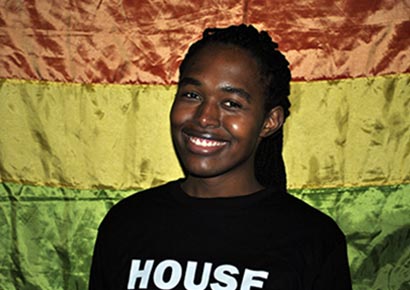 Wenzile Twala, 21, transwoman, student, Tembisa
Wenzile Twala, 21, transwoman, student, Tembisa
As a trans identifying person, the issue for me goes beyond the LGBT+ community and is with society in general. Trans representation is a major issue in our communities. When people talk about LGBT+, it’s always the “L” and the “G”, and people end up misgendering you because they’re not well informed about transgender people. I have an issue that people still don’t know the difference between gender and sexuality. Maybe they’re ignorant, but the fact that they refuse to unlearn that and learn what is correct really sets all of us back. There is progress with gay representation in the media, but that progress is not going at a fast rate to actually allow for other sexual orientations and identities to receive focus.
According to a study by Love Not Hate, 56% of surveyed young people between the ages of 16-24 said they had been discriminated against based on their sexual orientations in their schooling careers.
Obvious Nomalele, 19, queer, student, Limpopo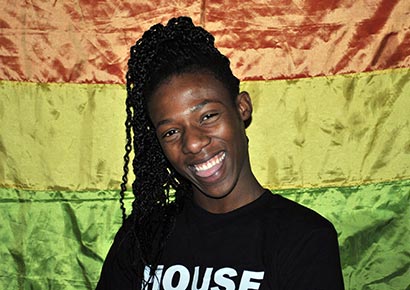
I think we need to start speaking on discrimination within our own community. For instance, Grindr. I feel like the app is for those people who succumb to society’s standards of conventional and acceptable gay. We cannot be out here against each other, while we’re trying to fight against heteronormativity at the same time. We also have a responsibility as individuals within the community to make sure we push hard for the representation we want in the media, for instance. It’s not easy, but we have started, and I think we need to keep pushing that.
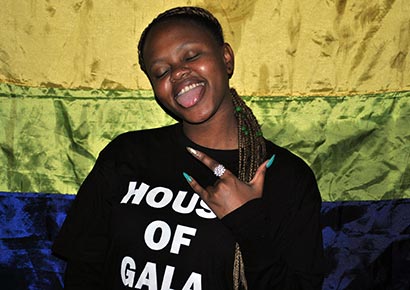 Masego Tlame, 21, bisexual, student, Rustenburg
Masego Tlame, 21, bisexual, student, Rustenburg
People are still not willing to understand, especially outside of the community. I remember when I told my family about my sexuality when I was still young, but till this day they’re still not willing to be accepting and understanding. Education could be one of our greatest allies if we received cooperation from government to have these conversations in classrooms. We have started, but there is little information so far, and it still has us in one place. We are not where were are meant to be as a free country, in South Africa.
Some young people think that we need to start addressing issues around the use of symbols and letters, in relation to sexual orientation and gender identity.
Lebogang Moloto, 20, gay, Parktown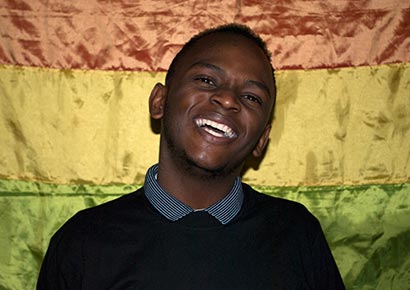
The problem is also with the symbols we use to identify ourselves. I understand that we need those labels and symbols for greater society to understand us, but also giving us names while straight people don’t, is a problem to me. Also, I think the lack of proper education on the LGBT+ community is a problem. Why can’t we have thorough content that focuses on gay sex for instance, like there is for straight sex, in schools? How are we meant to combat issues lie homophobia if we going to not have those conversations in schools and other institutions of learning?
Gay and transgender people were most likely to become victims of physical violence in communities, Love Not Hate found. More than one in ten of the students they surveyed said they had either been raped or sexually abused.
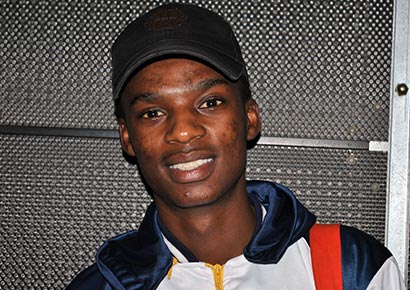 Nzamani Songwane, 20, straight, Krugersdorp
Nzamani Songwane, 20, straight, Krugersdorp
A lot of members of the LGBT+ community are having a hard time accepting who they are, because they don’t receive enough support from their families and from the leadership structures in this country. We still have people who are scared of coming out of the closet and expressing who they are because they fear for their safety. We need to sit down and also just ask ourselves, why are we so ignorant? These are also people and there is nothing wrong with that. Why do they have to constantly prove themselves? I would like South Africa to be one of those countries that completely accept everyone for who they are, but our leaders are slacking in making that happen.
Voxes have been edited for brevity and clarity.
Leave a Reply